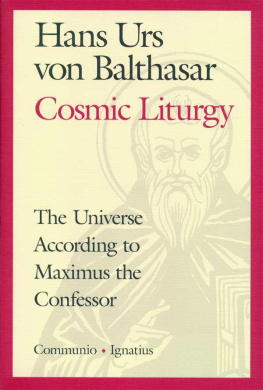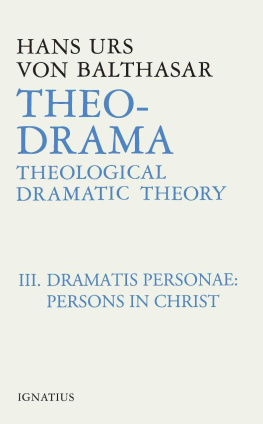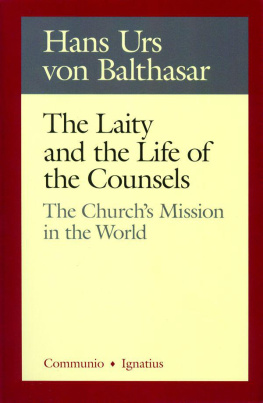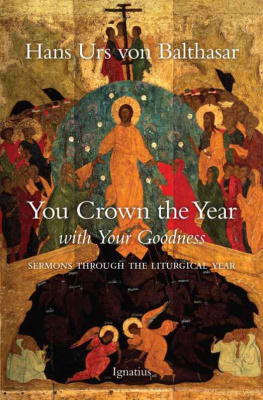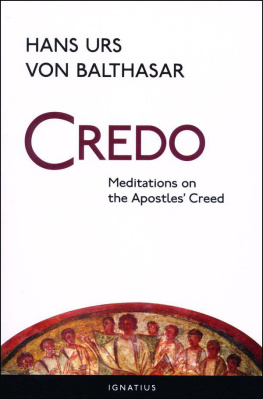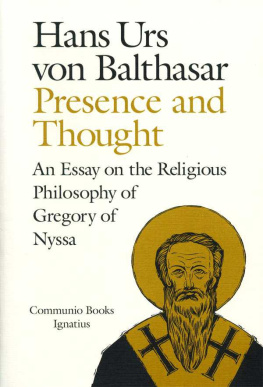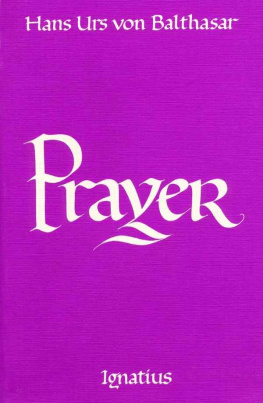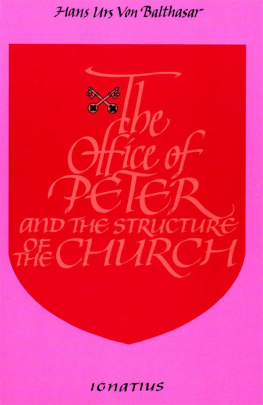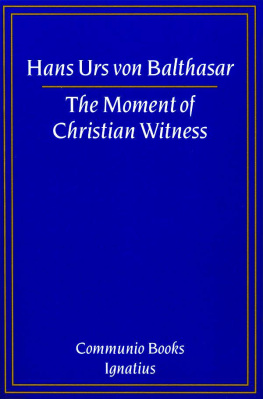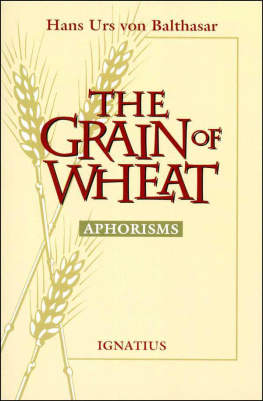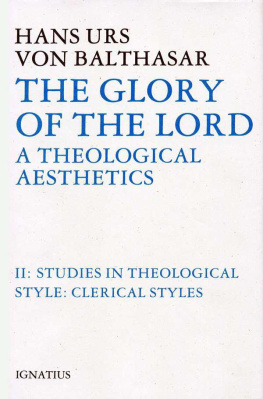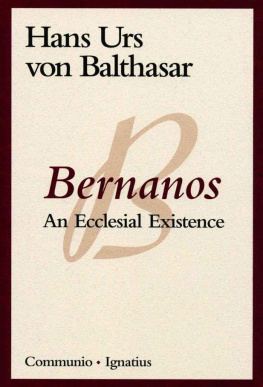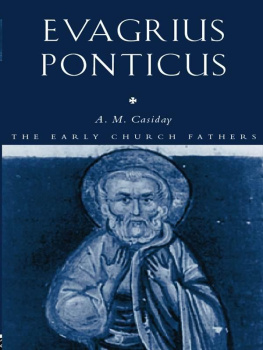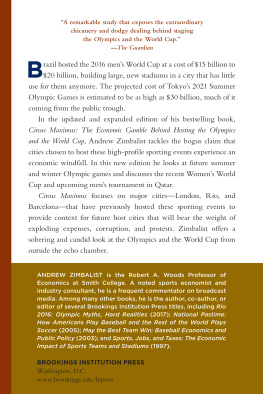COSMIC LITURGY
HANS URS VON BALTHASAR
Cosmic Liturgy
The Universe According to
Maximus the Confessor
Translated by
Brian E. Daley, S.J.
COMMUNIO
IGNATIUS PRESS SAN FRANCISCO
Title of the German original:
Kosmische Liturgie: Das Weltbild Maximus des Bekenners
Third edition
1988 Johannes Verlag, Einsiedeln
Scripture quotations in the English edition are from
the Revised Standard Version, 1946
Catholic Edition, 1965
Copyright 1946, 1952, and 1971 by the Division of Christian Education of the National Council of the Churches of Christ in the United States of America
Used by permission
Cover art by Christopher J. Pelicano
Cover design by Roxanne Mei Lum
2003 Ignatius Press, San Francisco
All rights reserved
ISBN 978-0-89870-758-8
Library of Congress Control Number 99-75360
Dedicated to Louis Bouyer
~
There is amongst us a set of critics who seem to hold that every possible thought and image is traditional; who have no notion that there are such things as fountains in the world, small as well as great; and who would therefore charitably derive every rill they behold flowing from a perforation made in some other mans tank.
S. T. Coleridge
CONTENTS
I.
a. Opening Up the Tradition
b. Between Emperor and Pope
a. Religion and Revelation
b. Scholasticism and Mysticism
a. Contents and Levels
b. Christ and the Synthesis
II.
a. The Dialectic of Transcendence
b. The Dialectic of Analogy
a. The Blighted Image
b. Hidden Fruitfulness
a. Elements of the Tradition
b. Number and What Is Beyond
III.
a. The Ontological Approach
b. The Epistemological Approach
a. Correcting the Myth
b. The Truth of the Myth
IV.
a. The Age
b. Extension
c. Realization and Grace
d. Between East and West
a. Being in Motion
b. Essence in Motion
c. A Balance of Contrary Motions
a. The Macrocosm
b. The Microcosm
V.
VI.
a. Parallels in Creation
b. From Leontius to Maximus
c. The Free Synthesis
d. Christology of Essence and Christology of Being
e. Beyond Antioch and Alexandria
a. The Exchange of Properties
b. The Meaning of the Doctrine of Two Wills
c. The Drama of Redemption
VII.
a. Nature and Scripture Grounded in Christ
b. Relation between Natural and Biblical Law
c. The Essential Points of Tension
d. The Contemplation of Nature
e. The Scriptural Law
f. The Synthesis of Christ
a. Ecclesial and Sacramental Worship
b. The Worship of Mind and Spirit
c. The Worship of Love
a. Action and Contemplation
b. Love as Unity
a. The Centuries on Knowledge
b. Movement and Rest
c. Restoration
TRANSLATORS FOREWORD
To publish a translation of a long and difficult book, now almost sixty-years old, which deals with an even more difficult, still relatively obscure Greek theologian of the seventh century, may seem to call for some justification. Yet to readers even slightly familiar with the thought of either Maximus the Confessor or Hans Urs von Balthasar, such justification will surely be unnecessary: von Balthasars Cosmic Liturgy: The Universe according to Maximus the Confessor deserves to be considered a classic, both because of its own literary character, as a work combining historical interpretation with constructive argument in a way seldom encountered today, and because of its crucial importance in the development of modern scholarships estimate of Maximus as well as in the growth of von Balthasars own theology.
Although the great theologians of the early Church exercised a strong influence on von Balthasars thought throughout his life, his direct scholarly engagement with them was mainly confined to his early career. Von Balthasars doctoral thesis, largely completed before his entrance into the Society of Jesus in 1929, was a wide-ranging study of the eschatology of eighteenth- and nineteenth-century German romantic literature and philosophy, later published in three volumes as Die Apokalypse der deutschen Seele (1937-1939). In 1934, however, von Balthasar was sent to the Jesuit faculty at Lyons / Fourvire, to study theology in preparation for ordination as a priest. There, especially through the influence of Henri de Lubac, he came into contact with the revival of patristic studies then under way, a movement that was to have a powerfully shaping effect on Catholic theology, spirituality, and worship in the decades after World War II and that was to be one of the decisive forces preparing the way for the Second Vatican Council. For de Lubac and his younger contemporaries, the study of the Fathers offered a new approach to the mystery of Christian salvation, as it is contained in the word of Scripture and the living tradition of the Church: a way largely free of the rigid intellectual confines of the scholasticism of twentieth-century theological manuals, more self-consciously rooted in biblical proclamation and liturgical practice and more optimistic about the possibilities of a direct, experiential union of the human subject with the infinite God. For some of von Balthasars French and German contemporaries, especially some of his young Jesuit confrres, such as Jean Danilou, Claude Mondsert, Alois Grillmeier, and Heinrich Bacht, the Catholic rediscovery of patristic literature in the late 1930s led to scholarly careers that would set new boundaries for textual and historical scholarship on the early Church; but even for those whose later work would be more in systematic or dogmatic theology, such as Karl Rahner, Otto Semmelroth, and von Balthasar himself, serious study of the Fathers was a decisive force in freeing their thought, early in their careers, for fresh ways of conceiving and formulating the heart of the Catholic tradition.
Almost immediately after finishing his theological studies at Fourvire, von Balthasar began publishing a series of books and articles on the Church Fathers that included critical textual studies and German translations, as well as essays in philosophical and theological interpretation. The focus of his interest was not so much the classical controversies and stages in the early development of Christian dogma, but rather patristic literature of a more explicitly spiritual or mystical character, especially the Platonizing tradition of Origen and his intellectual heirs. The first work he published in this field was a two-part article in French, in 1936 and 1937, while he was still a student at Fourvire, on the notion of mystery in Origen;
The present book first appeared in 1941, with the title, Kosmische Liturgie: Hhe und Krise des griechischen Weltbildes bei Maximus Confessor (Cosmic liturgy: Apex and crisis of the Greek conception of the universe in Maximus Confessor). But nothing in von Balthasars oeuvre would again compare with the depth, thoroughness, and originality of analysis and interpretation given to an early Christian theologian in Kosmische Liturgie . In 1961, von Balthasar published a second edition of the work, substantially revised in response to criticisms of the original version and drawing on the results of postwar scholarship for a number of historical issues; in particular, this second edition modified the theory, expressed in the original text, that Maximus had undergone a crisisin the sense both of challenge and of discernmentin his espousal of Origenist theology and had noticeably moved away from the thinking of Origen in his mature works. This change of emphasis on von Balthasars part, due in large part to the arguments of Dom Polycarp Sherwood and Endre von Ivnka in their studies of Maximus published in the 1950s but also to a nuancing of his own views of Origen and the Platonic element in early Christian theology, can even be seen in the altered title of the (1961) second edition: it was now simply Kosmische Liturgie: Das Weltbild Maximus des Bekenners ( Cosmic Liturgy: The Universe according to Maximus the Confessor ). It is this second edition that I have translated here. [A third printing was done in 1988.]
Next page
